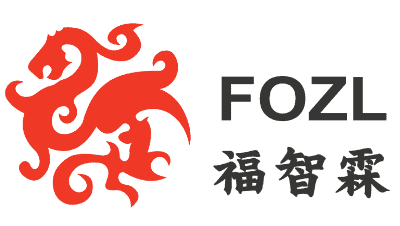
Custom Registration
2018-10-11
Company Capital
2018-11-06
Singapore Accounting Standards
Business entities around the world report their financial performance through financial reporting. Historically, the format of financial reporting has varied from country to country, and the financial reporting practices of each country have followed a set of principles, rules or practices that have evolved from the political, legal, economic and cultural environment of that country. As a result, financial reports often lacked international comprehensibility and acceptance.
In today’s globalized world, comparable, transparent and reliable financial information is the basis for the smooth functioning of global capital markets. Therefore, the need for comparable financial reporting standards has become critical, due to the dramatic growth in the number of transnational corporations, foreign direct investments, cross-border purchases and sales of securities, and foreign securities listed on stock exchanges.
What are accounting standards?
Accounting standards consist of a set of principles and management practices for dealing with various financial transactions. The main objective of the accounting standards is to establish recognition, measurement, presentation and disclosure requirements for significant transactions and events in general purpose financial statements. These statements provide information on performance, condition and cash flow, which is useful for various users in making financial decisions. Users of the financial statements include existing and potential investors, employees, lenders, suppliers and other trade creditors, customers, governments and their institutions and the general public. They use financial statements in order to satisfy their different needs for information.
The most important driving force in the development of international accounting standards is the International Accounting Standards Board (IASB), an independent accounting standard-setting body of the International Financial Reporting Standards Foundation. The IASB’s broad objective is to further harmonize accounting practices through the development of accounting standards, and to promote their acceptance worldwide. The International Financial Reporting Standards (IFRS) issued by the International Accounting Standards Board (IASB) is widely used as a standard for measuring the financial health of enterprises. The reliability and quality of the framework are high, but it is lengthy and complicated.

Singapore Financial Reporting Standards
Accrual accounting is one of the key principles of accounting standards in Singapore. Financial statements are prepared on the accrual basis of accounting. On this basis, the effects of transactions and other events are recognized as they occur (rather than in the form of receipt or payment of cash or their equivalents) and are recorded in the accounting records and reported in the financial statements for the relevant periods. Financial statements prepared on an accrual basis not only inform users of past transactions involving cash receipts and expenditures, but also inform users of future obligations to pay cash, and of resources representing cash that will be received in the future.
Singapore’s full set of accounting standards includes about 41 different standards, each known as FRS X (e.g. FRS 1). Each standard includes a specific subject, such as presentation of financial statements, recognition of revenue, accounting of inventories, etc.
Singapore Financial Reporting Standards for Small Businesses
In an ever-changing world, accounting standards are becoming increasingly complex. This makes it progressively more difficult for small businesses to confidently consider themselves compliant. For small and medium-sized entities (SME), compliance with the full SFRS is difficult, as the requirements are a burden on their small pool of resources. Like many other countries, SMEs make up the majority of companies operating in Singapore.
To meet the specific needs of international SMEs, IASB issued an IFRS specifically for SMEs in 2009. Following this, the Accounting Standards Council (ASC) of Singapore also issued Singapore Financial Reporting Standards (SFRS for SE) for small entities in November 2010.
The Singapore Financial Reporting Standards for Small Entities (SFRS for SE) is an alternative framework to the full version of IFRS in Singapore. SFRS is closely related to IFRS for Small Entities and was issued after detailed consultations with stakeholders. It provides an optional financial reporting standard for small businesses for reporting periods beginning on or after 1 January 2011.
The objective of the Singapore Financial Reporting Standards (SFRS for SE) for small businesses is to provide some relief to small Singaporean companies from compliance with full Singapore accounting standards while ensuring quality, transparency and comparability, which can benefit the investment community and other users of financial statements.
Requirements to apply for the use of Singapore Financial Reporting Standards for Small Entities(SFRS for SE)
Singapore-registered companies or Singapore branches of foreign companies are eligible to apply for the use of the Singapore Financial Reporting Standards for small businesses if they meet the following conditions:
- The company is not accountable to the public.
- The company publishes general financial statements for outside users
- The company must meet at least two of the following three criteria to be called a small business:
The company’s total annual revenue does not exceed S $10 million
The total assets of the company do not exceed S $10 million
The total number of employees in the company does not exceed 50.
It is important to note that the SFRS for SE has been in effect since January 1, 2011, and in order to qualify for the simplified SFRS, small businesses must have met the aforementioned criteria for each of the last two consecutive years. Eligible entities may comply with this standard until their size exceeds the limit for two consecutive reporting periods, in which case the company must comply with the full SFRS.
Subsidiaries of holding companies that follow the full SFRS may also apply for the use of SFRS for SE, provided that they meet the criteria listed above.
The differences between SFRS and SFRS for SE
Since there are SFRS for SE specifically for small entities, companies that meet the new criteria must consider several points before deciding whether to adopt SFRS or SFRS for SE. Before adopting these criteria, companies should also review their growth plans and the nature of their business.
Some of the issues that need to be carefully studied are
- Conversion costs – training costs, accounting systems and software
- Future Plan – Possibility of Enterprises Exceeding Scale Threshold in IPO Plan
- Group companies need to consider – impact on holding companies
- Financing – Financial institutions and lenders often need to view Singapore financial reports that follow full SFRS specifications
Marginal companies that are about to breach the size threshold are better off adhering to a full SFRS rather than wavering between the standards. Similarly, companies that are accustomed to using a full SFRS, companies that belong to groups or parent companies that follow a full SFRS, and companies that will be negatively affected by the treatment of certain accounting elements under the simplified version, must avoid adopting SFRS for SE.
In short, the Singapore reporting standard for small businesses is ideal for Singapore startups and companies that find problems with full SFRS, as well as those whose reports are not used by external parties.
As a corporate consulting firm licensed by Accounting and Corporate Regulatory Authority (ACRA), FOZL has a strong corporate accounting team in Singapore that can provide a full range of corporate services to Singapore-registered companies of different sizes and industries, including financial outsourcing services, Singapore company registration and maintenance services (Singapore company secretary, Singapore corporate account opening, annual review declaration, etc.), Singapore trademark registration services, Singapore tax declaration, Singapore tax relief preferential consultation, as well as professional licence application consultation, Singapore enterprise support policy application consultation, etc. For more information about Singapore Accounting Standards, please contact our customer service.

Accounting and Corporate Regulatory Authority of Singapore licensed corporate advisory firm.
Singapore Company Registration, Annual Return, Accounting & Tax
Trademark Registration, Corporate Advisory, Serviced Offices.
6 Raffles Quay,#14-02, #14-06, Singapore 048580

